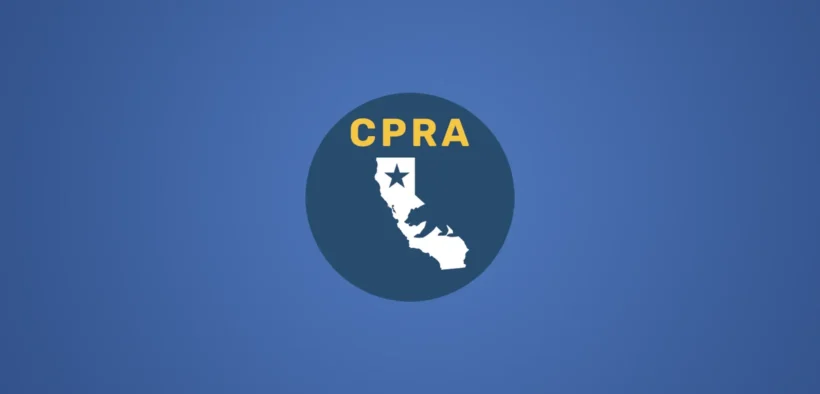California Privacy Rights Act (CPRA) 2025: The Shocking Rules Every US Business Must Follow
Share

The California Privacy Rights Act (CPRA) has been a game-changer for data privacy laws in the United States. Building on the California Consumer Privacy Act (CCPA), the CPRA became fully enforceable in July 2023 and continues to shape how businesses handle personal data in 2025.
If your business operates in the U.S. or collects data from California residents, the CPRA impacts you—whether you’re a startup, e-commerce brand, or multinational corporation. In this article, we’ll break down everything businesses need to know in 2025, with real-world examples, compliance insights, and actionable steps.
What Is the CPRA and How Does It Differ from CCPA?
The California Privacy Rights Act (CPRA) is often referred to as “CCPA 2.0.” While the CCPA gave California residents basic privacy rights, the CPRA expanded them, added new categories of sensitive data, and created a dedicated enforcement body—the California Privacy Protection Agency (CPPA).
| Key Difference | CCPA (2018) | CPRA (2020, enforced 2023) |
|---|---|---|
| Enforcement Body | California Attorney General | California Privacy Protection Agency (CPPA) |
| Scope | Consumer data rights | Stronger consumer rights, new obligations |
| Sensitive Data | Not explicitly defined | Explicit protections for sensitive personal information |
| Data Retention | No specific rule | Businesses must disclose and limit retention periods |
| Contracting | Limited | Mandatory contracts with service providers, contractors, third parties |
| Fines | Applied to all violations | Specific fines for children’s data misuse |
In short: The CPRA raises the bar for data privacy compliance in the U.S. and aligns more closely with the EU’s GDPR.
Who Must Comply with the CPRA in 2025?
The CPRA applies to for-profit businesses that meet any of these thresholds:
- Gross annual revenue of over $25 million.
- Buy, sell, or share personal information of 100,000+ consumers or households (up from 50,000 under the CCPA).
- Derive 50% or more of annual revenue from selling or sharing consumers’ personal data.
Real-life example:
A California-based retail chain with 120,000 loyalty program members must comply, even if its revenue is below $25M.
Key Consumer Rights Under CPRA
California residents enjoy enhanced rights that businesses must respect:
- Right to Know: Consumers can request details about what personal data is collected and how it’s used.
- Right to Delete: Businesses must delete personal data upon request (with exceptions).
- Right to Correct: Consumers can request corrections to inaccurate personal information.
- Right to Opt-Out of Sale/Sharing: Stronger opt-out options, including sharing data for cross-context behavioral advertising.
- Right to Limit Use of Sensitive Personal Information: Consumers can restrict how businesses use sensitive data (e.g., SSNs, precise geolocation, racial/ethnic origin).
Sensitive Personal Information (SPI) Under CPRA
The CPRA introduces Sensitive Personal Information (SPI), which requires stricter safeguards.
Examples include:
- Social Security numbers
- Driver’s license, passport numbers
- Precise geolocation
- Financial account login data
- Racial or ethnic origin
- Health or genetic data
Businesses must provide a “Limit the Use of My Sensitive Personal Information” link for consumers.
Practical Compliance Steps for Businesses in 2025
To remain compliant with CPRA, businesses should implement the following:
1. Update Privacy Notices
- Clearly disclose categories of personal data collected, used, or shared.
- Include retention periods for each data category.
2. Strengthen Vendor Contracts
- Ensure service providers and contractors follow CPRA rules.
- Insert data protection clauses into all contracts.
3. Data Mapping & Inventory
- Conduct a full data inventory to identify personal and sensitive information.
- Map how data flows across systems and third parties.
4. Honor Consumer Requests Promptly
- Implement workflows for DSARs (Data Subject Access Requests).
- Train customer service teams to handle privacy rights inquiries.
5. Build Opt-Out Mechanisms
- Add clear links: “Do Not Sell or Share My Personal Information” and “Limit SPI Use.”
- Ensure compliance across websites, mobile apps, and advertising platforms.
Enforcement and Penalties in 2025
The California Privacy Protection Agency (CPPA) actively enforces compliance.
- Fines: $2,500 per violation or $7,500 per intentional violation.
- Children’s Data: $7,500 per violation involving minors under 16.
- No Cure Period: Unlike the CCPA, businesses no longer have a 30-day “grace period” to fix violations.
Case Insight (2024):
A tech company was fined $1.2M for failing to honor consumer opt-out requests related to behavioral advertising. This case signals tougher enforcement in 2025.
CPRA vs. GDPR: A Quick Comparison
| Aspect | CPRA (California) | GDPR (EU) |
|---|---|---|
| Scope | California residents | EU citizens/residents |
| Sensitive Data | SPI categories defined | Special categories of data |
| Legal Basis | Focus on consent & opt-out | Explicit legal bases (consent, contract, legal obligation, etc.) |
| Enforcement | CPPA | Data Protection Authorities (EU) |
| Penalties | Up to $7,500 per violation | Up to 4% of global annual turnover |
FAQs About CPRA (2025 Edition)
Q1: Does CPRA apply to businesses outside California?
Yes. If your business collects data from California residents and meets the thresholds, you must comply—even if you’re located outside the state.
Q2: How is “sharing” different from “selling” data under CPRA?
“Selling” is exchanging data for money, while “sharing” includes data transfers for targeted advertising—even without monetary exchange.
Q3: How should small businesses prepare for CPRA compliance?
Even if you don’t meet the thresholds, adopting CPRA practices builds consumer trust and prepares you for federal privacy laws that may emerge.
Q4: What happens if a business ignores CPRA rules?
You risk financial penalties, reputational damage, and legal action from regulators or consumers.
Final Thoughts
The California Privacy Rights Act (CPRA) represents a new era of data protection in the U.S.. By 2025, enforcement is more active, penalties are harsher, and consumer expectations are higher.
Businesses that take compliance seriously—updating policies, training staff, and building transparent data practices—not only avoid fines but also gain a competitive edge by building trust with customers.
Key takeaway: Treat data privacy as both a legal obligation and a business advantage.
Pro Tip: Subscribe to updates from the California Privacy Protection Agency (CPPA) and regularly review your compliance roadmap. Laws evolve, and staying ahead ensures long-term resilience.





































Leave a Reply